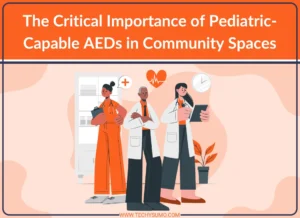Parenting is arguably one of the most rewarding and exhausting jobs on the planet. With sleepless nights, endless washing, school runs, and the constant emotional labour of raising little humans, it’s no surprise that parents have bad days where they feel like they’re drowning. If you’re feeling stretched, short-tempered, or like you’re barely keeping your head above water, you might be experiencing parental burnout, and you’re absolutely not alone.
Table of Contents
Recognising the Signs
Parental burnout is not just feeling like you need a big glass of wine after a particularly challenging day. It’s a deeper physical, emotional, and mental exhaustion that builds up over time. You might find yourself snapping at your children more, or feeling disconnected from family life, or experiencing that awful feeling of going through the motions with no joy.
The physical symptoms can be constant fatigue, headaches, or illness more frequently than usual. Emotionally, you might feel like you’re not measuring up as a parent, guilty for not enjoying parenting as much as you “should,” or resentful of the constant demands on your time and energy.
The important thing to note here is that acknowledging these feelings does not make you a bad parent, it just makes you human.
Finding Your Support System
One of the biggest parenting myths is that you can do it alone. Not only is it not true, but it isn’t even how families functioned historically when extended family and community were involved much more in the upbringing of children.
Also Read
Start by figuring out who is in your corner. These may be relatives, friends, other parents at school, or neighbours that you trust. Do not be afraid to ask for specific help, whether that is a person who will pick up the kids at school every so often, a friend to call when you’re feeling stressed, or a relative who will take the kids for a few hours on the weekend.
Most areas also have virtual and in-person parent support groups. These can be great for meeting people who truly understand what you’re going through and for exchanging practical ideas and tips.
Safeguarding Your Physical and Mental Well-being
Self-care is not selfish, it’s essential. If you’re drained, the entire family pays the price. It’s just like in the airline safety demo: you must put on your own oxygen mask before helping others.
This does not necessarily mean expensive spa days or scrambling to carve out hours for elaborate self-care ceremonies. Small, simple things can go a long, long way. Try to stay on top of basic habits like getting enough sleep when you’re able, eating well, and moving your body in ways that feel good, even if it’s just a quick walk around the block during school hours.
Mental health is also important. If you’re struggling, don’t be scared to discuss how you’re feeling with your GP. Sometimes, simply having someone to talk to about how you’re feeling can be an enormous relief.
Setting Realistic Boundaries
Social media and parenting magazines often make it look like everyone else has it together, but this simply isn’t the case. Having realistic expectations for yourself and your family is crucial to preventing burnout.
This might mean accepting that the home doesn’t need to be spotless, that ready-prepared meals are just fine from time to time, or that your children watching a bit more television than usual won’t harm them. Perfect parenting doesn’t exist, and trying to do so will only leave you feeling frustrated and lacking.
Practice saying no to commitments that aren’t crucial. Your time and energy are finite and protecting them is not selfish; it’s vital to the health of your family.
Foster Carers: Special Challenges and Support
Foster carers face particular problems that can add to the burnout risk. You are often caring for children who have been traumatised, and this can manifest in extremely challenging behaviour. The emotional challenges of potentially short-term placements, dealing with contact with the birth family, and negotiating the care system bring other sources of stress.
It’s extremely important that foster carers utilise the specific support that is available to them. Most fostering agencies like ISP Fostering provide ongoing training, support groups, and respite care arrangements. Don’t hesitate to use them. They’re there because the system recognises how stressful foster care can be.
Remember that foster children typically need more patience and comprehension than other children as they work through their experiences. This is not lowering expectations, but it does involve being realistic about progression and recognising small achievements.
Moving Forward
Parent burnout can be prevented and treated. By recognising the signs early, building a good support system, taking care of your wellbeing, and having realistic expectations, you can resume enjoying parenthood while being happy and healthy yourself.Don’t forget, asking for help is not a sign of weakness – it’s showing your children that we all need a helping hand now and again, and that’s okay.






